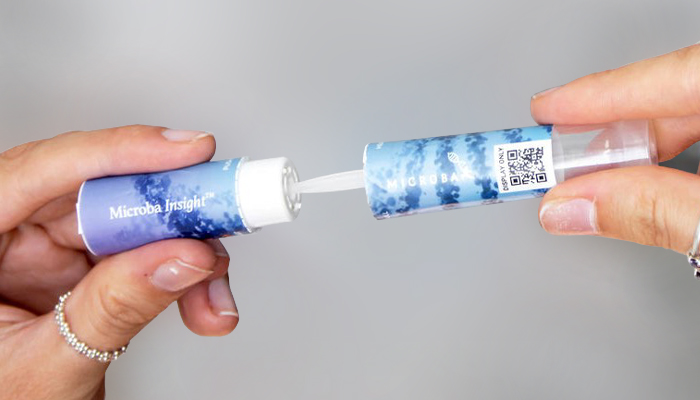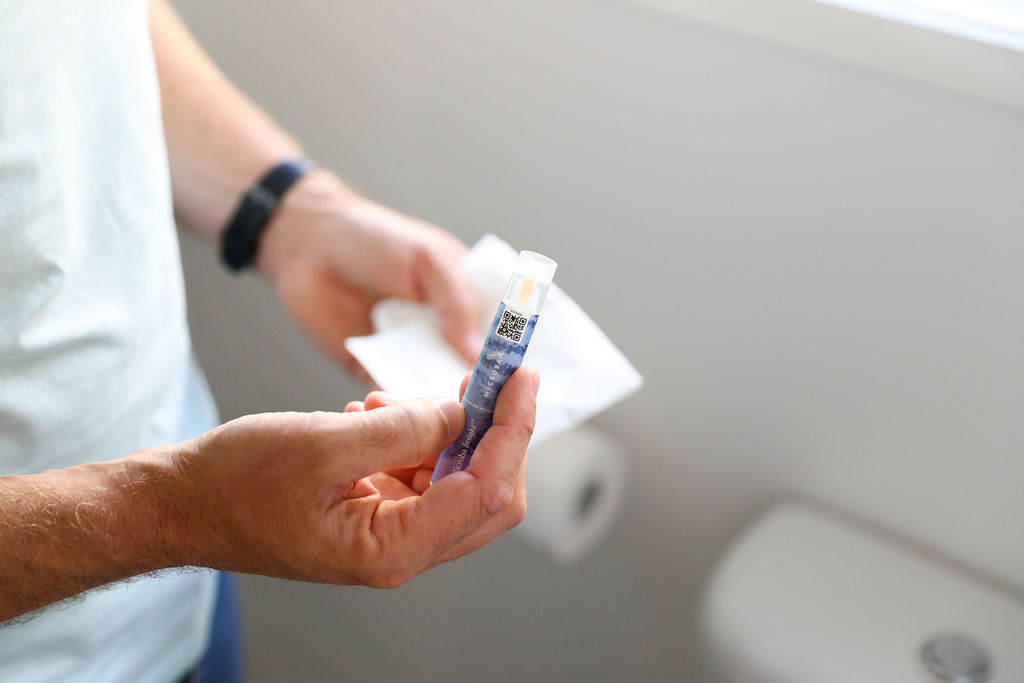
Did you know that there is no one test that can tell you everything about your number two’s?
Stool tests are more common than you might think, and some of the tests your Doctor may recommend can be lifesaving. Other tests – the newer, more exploratory ones – can provide detailed insights into what is happening in an individual’s gut and what microorganisms are living in there. Stool testing may be a topic that makes people uncomfortable, however, gut health conversations are increasing across the globe as more research shows us how the gut microbiome is linked to health and wellness.

Interested to see the potential links between your microbiome and your overall health? Discover Insight™.
Change in perception
Gut health has become a hot topic in recent years for both the community and scientists alike. This can be seen in the large number of gut health articles in magazines, on television, and on the internet.
Once upon a time, it was thought that bacteria were bad for health, and the ‘only good bug is a dead bug’ was the prevailing opinion. But now we’re starting to understand the beneficial links between the gut and overall health.
The gut microbiome – the community of bacteria living in an individual’s gut – has gone from a relatively unknown part of human health, to a huge world of possibilities.
How can we look at what’s going on in our gut?
There are several tests that look at aspects of our gut health, and some are more well-known than others. The different kinds of stool tests either look at human-produced compounds; specific bacteria and parasites; or they profile the entire microbiome living in the gastrointestinal tract to see what organisms are living there and what they are doing.
Important tests such as the National Bowel Cancer Screening Program and tests for Inflammatory Bowel Disease (IBD) search the stool for blood or inflammatory markers, while the tests which search for specific bacteria or parasites are detected through culture (e.g. seeing what species grow in the lab) or through a microscope.
More exploratory tests to see the community that is living in the gut microbiome and what the bacteria are doing can be done using a technique called DNA sequencing. There are two main types of DNA sequencing available, 16S rRNA gene (16S) sequencing and “shotgun metagenomic sequencing.” 16S sequencing looks at a small piece of a single gene found within bacteria and then predicts the types of bacteria that may be present. While this can be useful, the resolution attainable using such a small fragment of DNA is limited, and so the information is generally about groups of bacteria present and the method is unable to tell you much about the function of the organisms.
The best way to explore the gut microbiome is through metagenomic sequencing. This method analyses all of the DNA from the microorganisms in a sample.
This means that metagenomic sequencing laboratories – such as Brisbane-based Microba – can look at all of the genetic information present in a sample rather than methods such as 16S which sequence less than half a percent of the DNA within bacteria. This gives you the highest resolution view of your gut microbiome and provides you with information on both the species present and what they are capable of doing in your gut.
What does this mean?
There are many tests out there that look at different aspects of your gut health by looking for different information. Tests such as the Bowel Cancer Screening Test and testing for parasites are important, and if you are sent one in the mail, or asked by your Doctor to undertake these, you definitely should! But when it comes to exploring your own gut to gain more understanding on what it’s doing and the types of bacteria living in there, metagenomic sequencing is the best method available.
Tests such as Microba’s Insight™ kit provide you with detailed information about which bacterial species are living in your gut, what they are doing, what foods they need as fuel and how they may be connected to other areas of your body and health. This allows you to take control of your gut health and empower yourself with personalised insights that can help guide dietary or lifestyle changes to improve your overall health. You can also work with a Microba-informed health care practitioner to further delve into your report and access their expertise on ways to improve your overall health into the future.
Interested to see what a metagenomic stool test can reveal about your health? Learn about Insight™.
This microbiome test is not intended to be used to diagnose or treat medical conditions. A full disclaimer is available here



